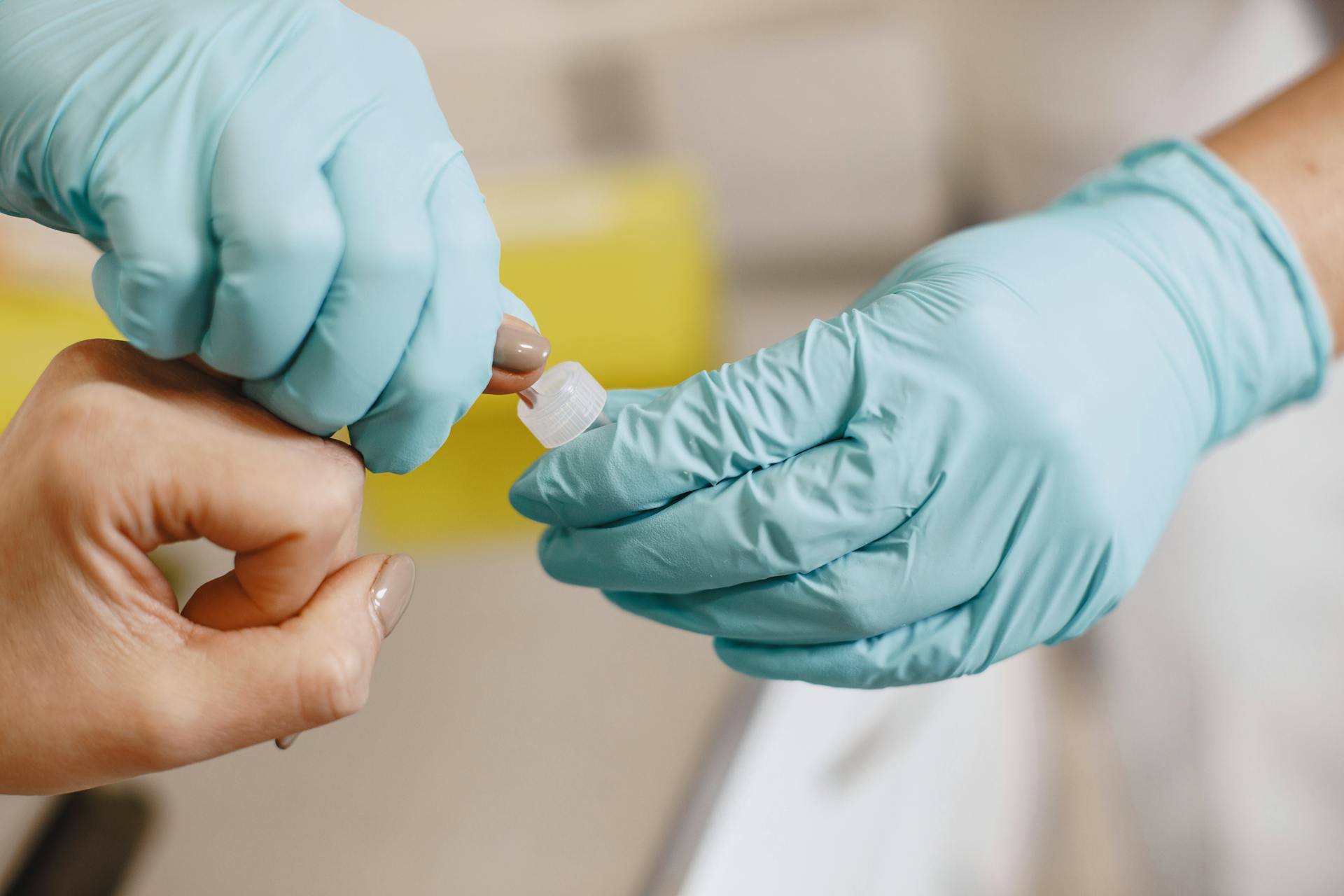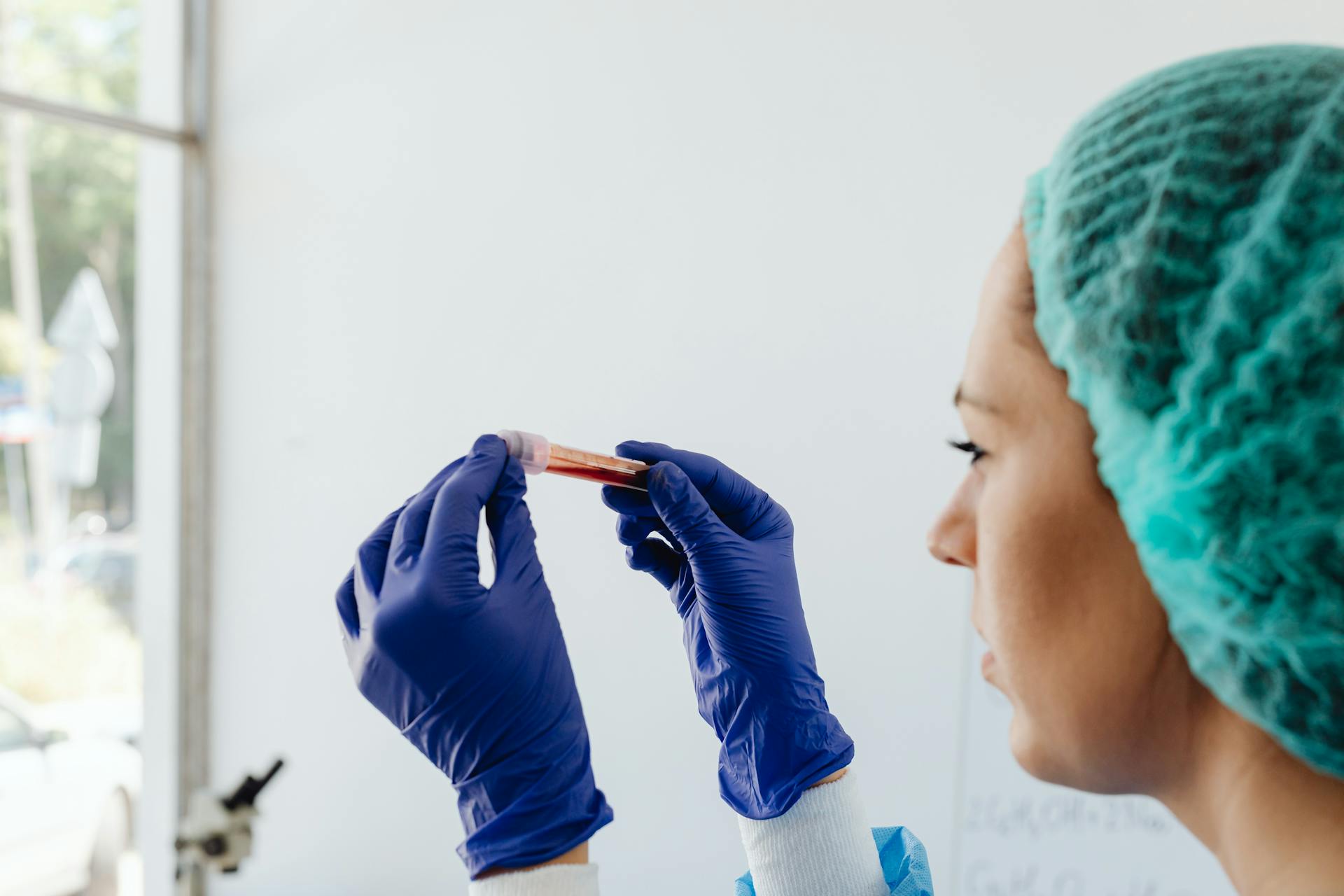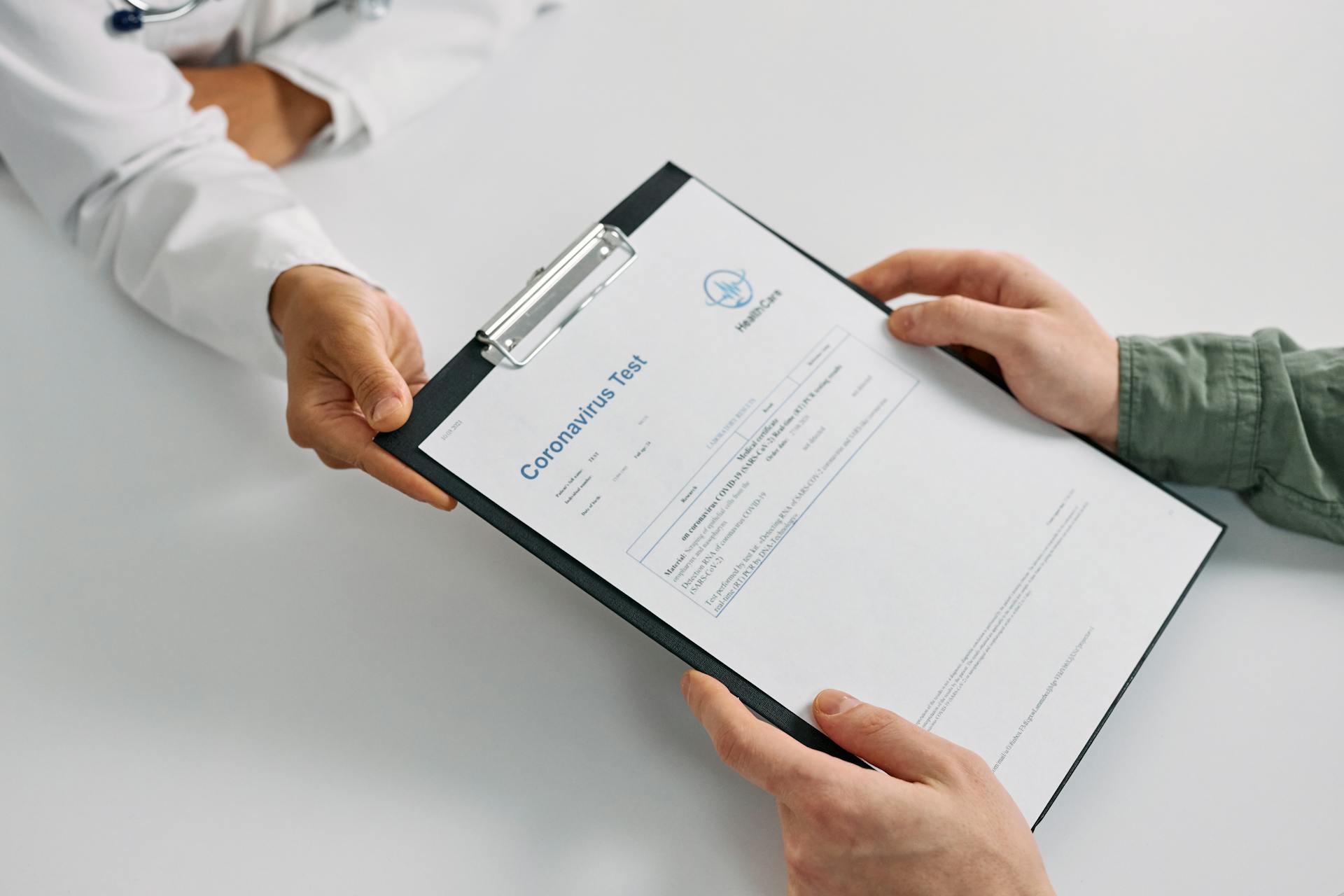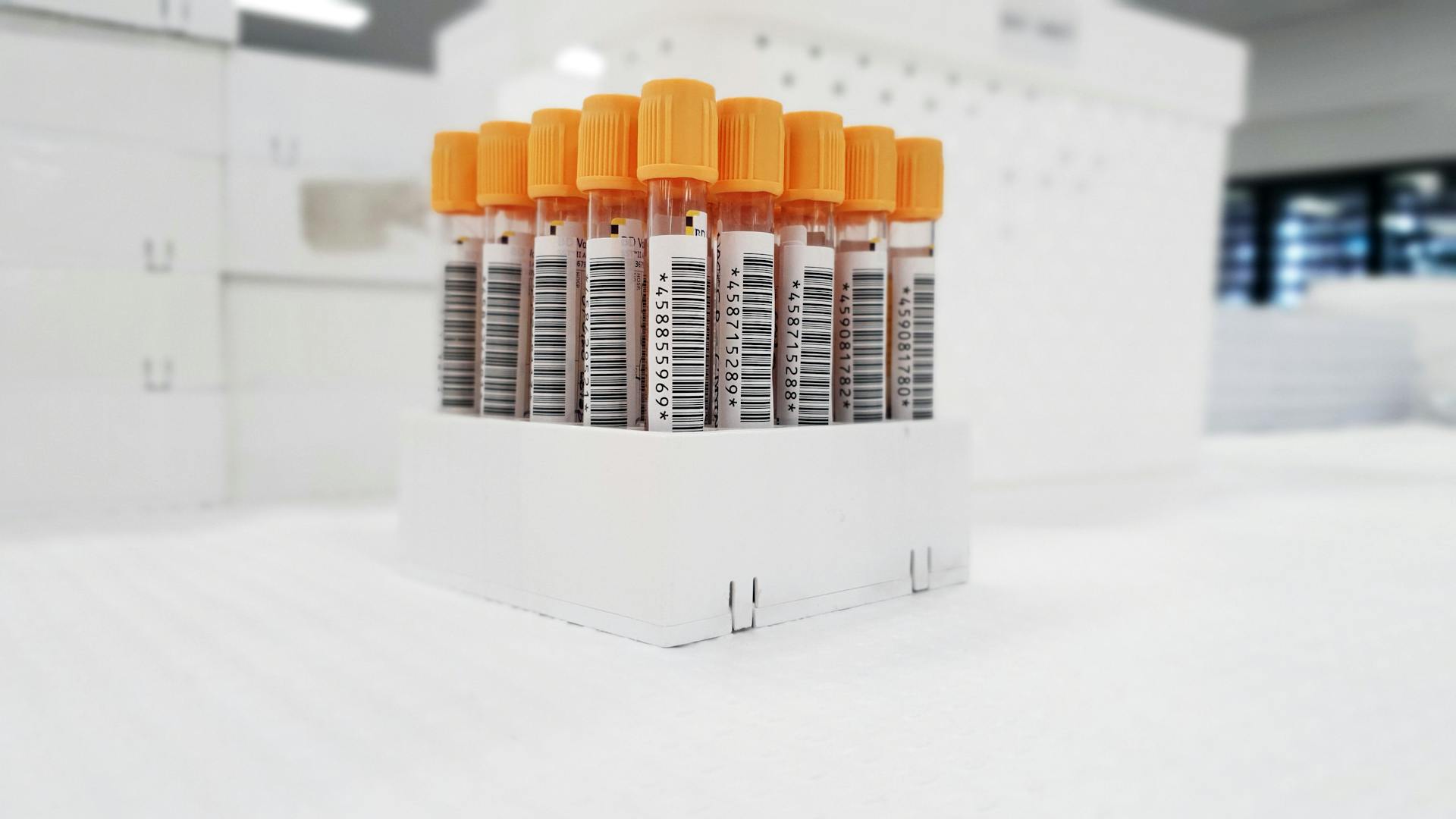
The cost of a Comprehensive Metabolic Panel (CMP) without insurance can be a significant concern for many individuals. On average, a CMP can cost anywhere from $100 to $500.
In some states, CMP prices can be as low as $50, while in others they can exceed $1,000. The cost varies depending on the location and the laboratory that performs the test.
If you're uninsured, it's essential to shop around for the best price. Some laboratories may offer discounts or package deals that can bring the cost down.
What is a Comprehensive Metabolic Panel?
A Comprehensive Metabolic Panel (CMP) is a group of 14 laboratory tests that check how different chemicals in your body are balanced to make energy for specific functions.
This panel gives a snapshot of your overall health, including the status of your liver, kidneys, blood sugar, and protein levels.
The CMP is particularly useful for patients who are diabetic or have affected organs as a result of some medications, as it can help identify any underlying issues.

Carbon dioxide levels, which are a byproduct of metabolism, can be low in people with respiratory or metabolic conditions.
The CMP can also detect electrolyte imbalances, fluid imbalances, and the impact of certain medications on the liver and kidneys.
If your CMP result is abnormal, it could indicate liver disease, kidney disease, hypertension, or diabetes.
The test measures various components, including alkaline phosphatase (ALP), alanine transaminase (ALT), aspartate aminotransferase (AST), bilirubin, albumin, and total protein.
Here are some of the key components of a Comprehensive Metabolic Panel:
- Alkaline phosphatase (ALP)
- Alanine transaminase (ALT)
- Aspartate aminotransferase (AST)
- Bilirubin
- Albumin
- Total protein
What's Included in the Test?
The comprehensive metabolic panel (CMP) is a broad assessment of various aspects of physical well-being, measuring 14 different aspects of your health.
The CMP includes a range of measurements, such as glucose, which can indicate diabetes or other glucose-related conditions, and calcium, which is essential for bone health and nerve function.
A CMP can detect abnormalities in blood sugar, nutrient balance, and liver and kidney health, making it a valuable tool for diagnosis, screening, and monitoring.

The CMP measures various electrolytes, including sodium, potassium, and chloride, which help regulate fluid balance and muscle and nerve function.
Here are the 14 measurements included in a CMP:
- Glucose
- Calcium
- Sodium
- Potassium
- Chloride
- Blood urea nitrogen (BUN)
- Creatinine
- Bilirubin
- Total protein
- Alanine aminotransferase (ALT)
- Albumin
- Alkaline phosphatase (ALP)
- Aspartate aminotransferase (AST)
- Bicarbonate
These measurements provide a comprehensive picture of your overall health, helping your healthcare provider identify potential issues and develop an effective treatment plan.
Is the Basic the Same?
So, is the basic metabolic panel (BMP) the same as a comprehensive metabolic panel (CMP)? The answer is no. A BMP is a blood test that gives a general overview of your metabolism, consisting of 8 tests.
One key difference between BMP and CMP is the number of tests included. A BMP has 8 tests, while a CMP has 14 tests.
A BMP measures 8 substances in your blood, including glucose, calcium, and sodium. These substances are crucial for checking your bodily functions and processes, such as kidney function, electrolyte and fluid balance, blood sugar, and metabolism.
Here are the 8 substances measured in a BMP:
- Glucose
- Calcium
- Blood urea nitrogen
- Creatine
- Sodium
- Potassium
- Chloride
- Bicarbonate
If the results of a BMP are abnormal, it could indicate serious health issues, such as kidney failure and diabetes.
Cost of Comprehensive Metabolic Panel

The cost of a Comprehensive Metabolic Panel (CMP) can be a significant concern for those without insurance. The cost can vary depending on several factors such as location, healthcare provider or lab, insurance coverage, and whether it's performed in a hospital or outpatient setting.
On average, the cost of a CMP test without insurance can range from $30 to $300. However, some laboratories offer the test at a lower price, such as Cura4U, which offers it for as low as $15.
You may be able to negotiate a discount by making an upfront payment, but this is not always the case. Some healthcare providers may offer discounts for paying in full upfront, but it's essential to ask about any potential discounts before receiving the test.
If you're looking to reduce the cost of getting a CMP without insurance, consider visiting a free or subsidized clinic. These clinics often charge a low fee for blood work, making it a more affordable option.
For more insights, see: What Do You Pay Upfront When Financing a Car

In some cases, ordering discounted blood work tests online may be a cheaper option. However, if there are any abnormalities in your results, you'll need to see a medical professional, which may add additional costs.
Here are some estimated costs for CMP testing without insurance:
- Average cost: $30 to $300
- Cura4U: $15
- Free or subsidized clinic: varies
- Online blood work tests: varies
Keep in mind that these costs are estimates and may vary depending on your location and the specific healthcare provider or lab you choose.
Purpose and Measurement
A Comprehensive Metabolic Panel (CMP) is a broad assessment of various aspects of physical well-being, detecting abnormalities in blood sugar, nutrient balance, and liver and kidney health.
The test measures 14 different laboratory tests to check the overall performance of your body, including the ratio of how different chemicals are balanced to make energy for specific functions.
The CMP is used to assess the overall performance of the body and the status of several components that define your healthy metabolism, including the liver and kidneys, blood sugar level, electrolytes, and fluid balances.

The 14 measurements of the CMP include tests for liver function, such as alanine aminotransferase (ALT), alkaline phosphatase (ALP), and aspartate aminotransferase (AST).
The CMP also measures electrolytes like bicarbonate, chloride, potassium, and sodium, which are essential for various bodily processes, including muscle and nerve function.
The test can detect abnormalities in blood sugar, nutrient balance, and liver and kidney health, making it a valuable tool for diagnosing and monitoring various health conditions.
Here's a breakdown of the 14 measurements included in the CMP:
When and Where to Get Tested
To get tested for a comprehensive metabolic panel (CMP), you'll need to visit a medical laboratory, office, or clinic. The test is typically prescribed by a doctor.
You'll need to provide a blood sample, which will be taken by a medical professional. The analysis of the sample is conducted in a laboratory.
You can expect to be prescribed a CMP test by a doctor, after which you can get the test done at a medical laboratory, office, or clinic.
Intriguing read: Do You Need Comprehensive Insurance
Interpreting Test Results

Interpreting your Comprehensive Metabolic Panel (CMP) test results can be a bit overwhelming, but don't worry, it's a crucial step in understanding your overall health.
Your healthcare provider will review each measurement on the test report, comparing your levels to the reference range for that specific lab. This is important because different labs may use slightly different methods to measure the same components.
A CMP test report typically lists each of the 14 items measured and their corresponding levels in your sample. It's essential to consider your test levels in the context of the reference range listed for the lab that analyzed your sample.
To give you a better idea, here's a table showing common normal ranges for some of the measurements on a CMP test, as described by the American Board of Internal Medicine (ABIM) and the National Library of Medicine's A.D.A.M. Medical Encyclopedia:
Your healthcare provider will check if any of your measurements are abnormally high or low, and consider the degree to which they vary from the laboratory's reference range.
When reviewing your test results, it's essential to look for patterns in the measurements that are abnormal. These patterns can provide meaningful information about your
Related Topics

If you're concerned about the cost of a comprehensive metabolic panel without insurance, you may also want to consider the cost of other medical tests that often come with it.
A blood glucose test, which is typically included in a comprehensive metabolic panel, can cost anywhere from $10 to $50 without insurance.
The cost of a comprehensive metabolic panel can vary depending on the location and the healthcare provider.
The price of a lipid profile test, which is also included in a comprehensive metabolic panel, can range from $20 to $100 without insurance.
If you're looking for ways to reduce the cost of medical tests, you may want to consider shopping around for a healthcare provider or looking into community health clinics.
A fresh viewpoint: Application Fees May Be Collected on a Mortgage Loan of
Basic vs Comprehensive
The Comprehensive Metabolic Panel (CMP) is an extensive blood test that assesses the overall performance of your body, including your liver, kidneys, and blood sugar levels. It's a broad screen of overall health, consisting of 14 tests.

The Basic Metabolic Panel (BMP), on the other hand, is a blood test that gives a general overview of your metabolism. It consists of only 8 tests, excluding liver and protein tests.
Here's a comparison of the two:
The CMP adds the tests found in a typical liver panel test, making it a more comprehensive assessment of your overall health. If your CMP result is abnormal, it could indicate liver disease, kidney disease, hypertension, or diabetes.
Sources
- https://cura4u.com/blog/how-much-does-a-comprehensive-metabolic-panel-cost
- https://www.testing.com/tests/comprehensive-metabolic-panel-cmp/
- https://clearhealthcosts.com/blog/2022/05/how-much-does-a-blood-test-cost/
- https://enhancehealth.com/blog/how-much-does-blood-work-cost-without-insurance/
- https://nhhealthcost.nh.gov/costs/medical/result/comprehensive-metabolic-panel
Featured Images: pexels.com


